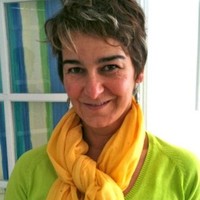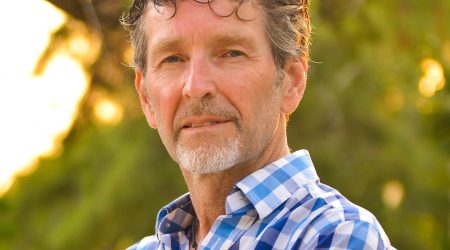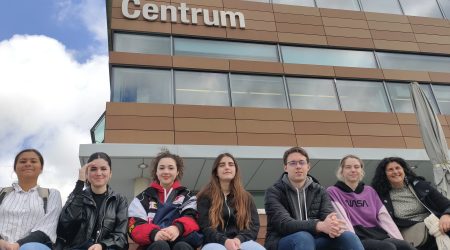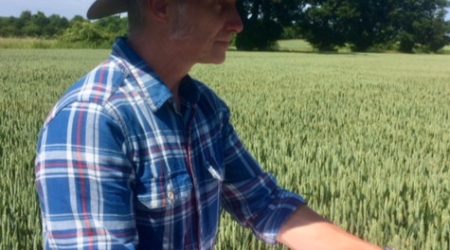Alumni Career Stories: Dr Sancha Salgueiro, Bench Scientist to CEO in Life Science Business

Meet Dr Sancha Salgueiro, a member of the John Innes Centre’s Alumni Network.
Sancha joined Roger Hull’s lab in the Virology department at the John Innes Centre in October 1988 as a visiting worker. She stayed in Roger’s lab to complete a PhD with the University of East Anglia between September 1989 to September 1992.
Earlier this year, we caught up with Sancha to ask her about her time here in the City, her career so far, and how her journey from the lab bench to running her own business development consultancy happened.
“In Portugal, where I come from, I had my first science job in a public research institute. Then I had the opportunity to come to the John Innes as a visiting worker. I was so excited to have the chance to have an experience abroad – my first time visiting another country!”
During her PhD studies, Sancha’s research focused on the somewhat niche subject of PEMV, a pea virus. After her PhD was complete, Sancha left the John Innes, yet unexpectedly ended up staying in the UK.
“I had plans to continue my work in Portugal once the PhD was finished, but that didn’t happen. Partly it was the realization that the world was larger than what I had seen until then, and because being at the John Innes made me feel so ‘powerful’. There was a lot of good science and that created a sense of possibility.”
“I had the impression that collectively, we could answer ‘all questions’.”
It was with this powerful motivation that Sancha began her search for work.
“I opened my search wide, focusing on the methods I had used and developed and on how I approached the problem, instead of speaking about peas.”
This led to being appointed as a Post-Doctoral researcher in October 1992 with the Medical Research Council (MRC) Collaborative Center, a laboratory-based technology transfer function translating the work of MRC research scientists. This role involved working on a project part funded by the German pharmaceutical company E. Merck.
This move from plant science to medical science was at the time something unexpected, but it was a decision and move which shaped Sancha’s career going forward. After two years as a Post-Doc at the MRC-Collaborative Centre, Sancha decided to go back to plant research, despite the offer of a contract renewal in this role.
In October 1994, she moved to a new Post-Doc position in the Integrated Approach to Crop Research (IACR) at Rothamsted Research. Sancha told us about the decision to move:
“With hindsight, perhaps this was a silly decision. If I had stayed at the MRC-Collaborative Centre in London or considered the job offer with E. Merck, I would have had the chance to continue to do great science, plus with experience of working in collaboration with a large corporation, something I have come to realize is very useful for a non-academic career.”
As the end of this position was approaching, Sancha decided it was time to leave the UK. Applying for various roles in Europe, she was offered five jobs. With so many exciting choices at her fingertips, it was interesting to find out where Sancha decided to go next.
“I accepted a job offer as a Researcher on a permanent position from the French company Meristem Therapeutics, (a spin out of seed producer Groupe Limagrain). This company was interested in my combined experience in plant science and in medical research because they were developing biologics in plants, for use in medicine.”
“In small, well-funded companies like Meristem Therapeutics, your contributions are very visible. Within one year of arriving, I was promoted to Head of the Molecular Biology team. Then, in line with my request to train in business, I became Manager in the Business Development Department. By this point, I had also decided that I would like to do an eMBA (Executive Masters in Business Administration) and the company supported me to do this.”
Sancha stayed with Meristem Therapeutics for four more years, finishing her eMBA and then moving on to work in positions in Business Development in other biotech companies such as Diatos, Novozymes, ExpreS2ion Biotechnologies, and ChemPartner.
These business development experiences then led to the foundation of her own consultancy Chart Biotechnology in 2015, where consulting has been her main occupation and sole source of income since 2018.
The switch to being a full-time consultant on bioproduction projects was a big decision.
“I am so grateful to the clients that trusted my company, and so proud of how we could help them in their projects. I started as a bench scientist; I did not plan then to be in this position. I suppose this is probably the case for many others, we create opportunities around what we like, and there are also opportunities that arise, when changes happen.
“We are not always in control, but we can remain prepared and alert when changes occur”.
Having experienced working life and practices in different businesses, Sancha had lots of opportunities to learn about business development and what skills were most useful.
“I learnt that there are many skills which scientists develop that are broadly applicable to many businesses and situations: problem analysis, synthesis and communication of data, project management, to name a few. Many business developers in the Biotech and Pharmaceutical business have a scientific background because of these transferable skills.”
With many scientists now complementing their scientific studies and experience with training in business, Sancha told us how the world of business development has changed in her view.
“In my experience, Business Development has evolved to mean a commercial position: a salesperson. The type of work I did when I started in Business Development was closer to Licensing, and at times to alliance management. Later, my work also involved what is called sometimes “value sales” (i.e., the impact value of the undertaken research).”
With a career now firmly rooted in life science businesses, Sancha still tries to remain close to the science. “In Business Development you need to keep on top of innovations in your field of work, and that means reading a lot, listening to the experts, and meeting with innovators. So, I spend a lot of traveling and reading.”
Now with a successful global business consultancy, Sancha shared her thoughts on her time spent at the John Innes, and how being affiliated with the Institute has supported her career:
“My experience at JIC had a huge impact on my career: the fact that it is a top science centre makes a CV stand out for jobs where science is relevant. This is also true where the skills underlying science are perceived as relevant, such as in management consultancy.
“The JIC network is another huge asset. One finds JIC Alumni in most top Universities globally, and in many of the top Biotech companies. Having that common experience makes a difference when assembling partners for a grant consortium, or when starting business discussions.
“I hope that sharing my experience shows that the skills we learn in science constitute an excellent base for many exciting jobs, even jobs not directly related to science and that having the opportunity to develop those skills in a world-known centre such as the JIC is a very strong asset”.



